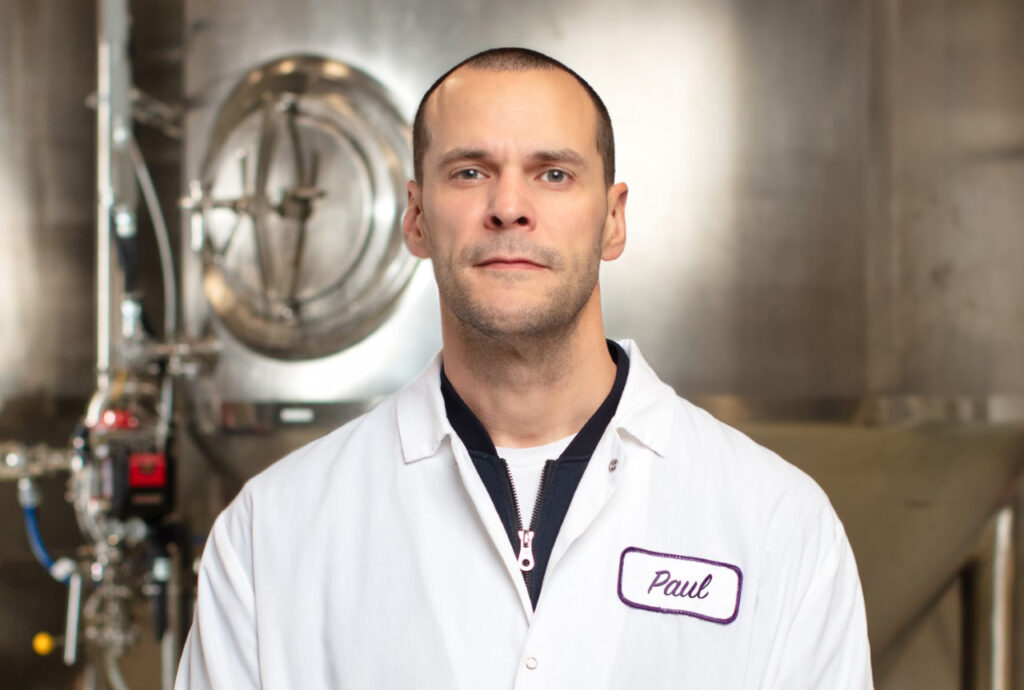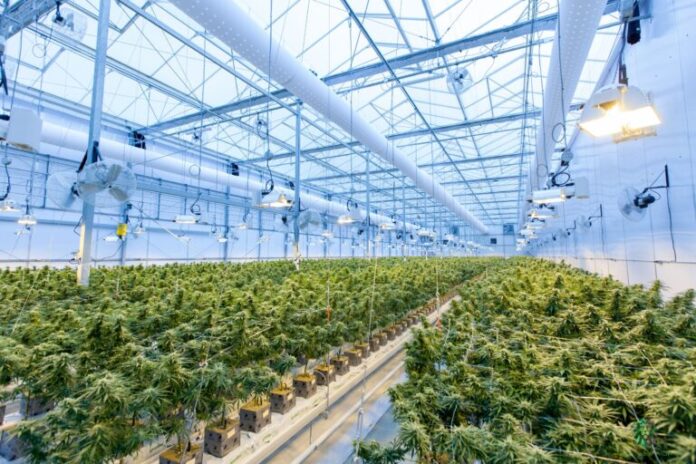nnabis is red hot these days, even as it hangs in a precarious balance between state and federal legislation. Despite this, THC and its milder, fully legal counterpart, CBD, continue to boom with consumers of all ages.
States like Colorado, California and Illinois have moved ahead in the market, pursuing further regulation across state lines after legalizing cannabis within their borders. “California recently passed Senate Bill 1326, authorizing California to enter into agreements with other states that allow medicinal or adult-use commercial cannabis activity to allow for interstate transfers between cannabis licensees,” says Andrea A. Golan, Counsel at Vicente Sederberg, a cannabis law firm based in Colorado, CO.
Decisive moves like this towards legalization and regulation provide a glimpse into what the recreational marijuana industry may look like for the rest of the country.
Green in a Grey Area
The elephant in room, of course, is the tricky issue of legality. Many of the questions around cannabis — specifically THC — trace back to the “grey area” that this substance (and subsequently all products that contain it) finds itself in. When asked if she expects THC to be federally legalized within the near future, Golan was emphatic: “No, I don’t. Instead, we might see piecemeal legislation or a ‘tail wagging the dog’ scenario, where more and more states legalize, leaving Congress no choice but to act. We may also see more states move ahead with limited interstate commerce despite the federal prohibition.”
“On the federal level, while I don’t see federal legalization on the horizon, Biden recently asked the Secretary of Health and Human Services to review and reevaluate marijuana and how it is scheduled under the Controlled Substances Act,” continues Golan. “Unlike the legislative proposals we’ve seen in the past several years, this is a directive to the Executive Branch to initiate an administrative process that could reschedule marijuana from Schedule I, or deschedule marijuana altogether.”
What do other people in the industry foresee? Petalfast is a cannabis growth agency that consults with businesses entering the market. They are familiar with navigating the maze of regulation and red tape. However, another potential challenge comes from the other side of the law. Due to a variety of factors including price and availability, some consumers find themselves returning to unregulated growers — AKA the black market. Businesses may have to contend with competition from this “legacy market.”
“It comes down to two things: regulation and access,” says Jason Vegotsky, CEO of Petelfast. “I don’t think anyone wakes up in the morning and says, ‘I’m going to go buy illegal weed.’ I think people say, ‘it’s not convenient for me to go get a legal product.’ Whether that be access from a drive-time perspective — as in there’s not any legal outlets close enough — or access from a pricing standpoint, that fits what they were used to getting. Obviously, in a legal framework, things are going to be a bit more expensive. How big that gap is will dictate how fast we can get consumers moving from the legacy market into the legal market.”
“Over time, we do see prices come down,” Vegotsky adds. “When a state first comes online, there’s less supply than demand, but over time, more supply enters, and prices drop. I believe that access is more important than price point. Prices eventually come down; competition will breed price drops. A lot of people won’t make the drive to buy legal cannabis. We need more cities to adopt — the more cities adopt, the more we see the benefits of legalization.”
“In fact,” continues Vegotsky, “I believe that any city that doesn’t adopt the legal framework of cannabis is adopting the illegal framework of cannabis. It is happening in your city, whether you want to believe it or not. Why not put a safer avenue in the city with recreational cannabinoids?”
Another important process that businesses need to anticipate is how cannabis will be regulated once its legal nationwide. A common expectation is that the drug will be overseen similar to the beverage alcohol industry, with a three-tier system in place and separation between producers and retailers.
“If there is Federal legalization, it is likely we’ll see a regulatory framework similar to alcohol, with an agency like the TTB taking the lead,” says Golan. “It would also make sense for states to combine their alcohol regulatory oversight with their cannabis oversight, since in many laws the laws would be similar.”
“I think cannabis will go the wine and spirits route,” says Vegotsky. “From a compliance standpoint, it regulates and lets all parties know the rules of the game and how to play within it. New York came out with a three-tier system. I think it’s a very good system to start. We’ll see how it works out, but if New York has success, you’ll see more and more states adopt the three-tier system.”

“One of the things I’ve observed about the three-tier system is how different it’s applied state-to-state,” says Paul Weaver, Director of TeaPot, a cannabis beverage company under the Boston Beer Company. “Every state still has a very different path to market for selling alcohol. The one constant is that beverage distributors — i.e., the beverage trucks, the forklifts, the warehouses and everything required to move beverages — is a tried-and-true system. I think it’s appropriate to think about how they could add value to the cannabis beverage industry, because they have the infrastructure. They have the ability to move heavy liquids from point A to point B in a safe and responsible manner. Whether you call this a three-tier system, whether it’s the same actors, I do think that we will benefit from beverage infrastructure facilitating cannabis beverages at the state level.”
TeaPot is currently only distributed within Canada, due to the legal restrictions within the U.S. Despite this, they have hopes to enter the U.S. market in the near future.
CBD: An Alternative Route
Of course, while THC remains a touchy subject, the other cannabinoid on the market faces no such hurdles. CBD is a federally legal option that is now a popular ingredient in alcohol-free drinks. Many younger, health-conscious consumers view it as an alternative to alcohol. Southern Glazer’s sees massive potential in this area for distributors.

“Studies anticipate that nearly 100 million adults have tried or will try CBD in the next 12 months,” says Kariff Rhooms, VP of New Ventures at Souther Glazer’s. “All projections indicate continued growth, as more retailers respond to increased consumer demand. Consumer interest in health and wellness is helping to drive growth in the category. CBD drinks are leading the category. As consumers are becoming more educated about the category, it’s our role as a distributor to educate our on and off premise partners. This includes our emphasis on compliance to help our customers feel more comfortable with the category.”
The distributor entered the market in 2020, to both retailers and producers eager to capitalize on the new product category. “At the time, some of our retail customers were already selling it and the supplier base was heavily fragmented, which provided an opportunity to achieve significant synergies with our established distribution model,” says Rhooms. “Hemp-derived CBD is a highly profitable category with significant market potential. It continues to be an emerging category, with growing interest and demand from consumers, and therefore retailers.”
Despite the buzz around the hot new category, CBD isn’t immune to potential legal pitfalls, such as those mentioned that pester THC. Like alcohol marketing, advertising around any cannabinoid needs to be handled delicately.
“Although our coffee does not contain THC, the laws surrounding the use of ads to promote THC and cannabis or even cannabis-adjacent products remain tricky due to ongoing legal complexities,” says Amber Senter, founder of Landrace Origins, a beverage company dedicated to pairing coffee with CBD. “To overcome these challenges, we leverage influencer marketing and niche online communities to advertise while exploring other mainstream and in-person promotional opportunities.”
Cannabinoids and Retailers
CBD (and likely THC to follow) has edged into areas that were typically the purview of beverage alcohol. Yet, many don’t anticipate a tension between cannabinoids and alcohol. “Retailers are open to selling CBD drinks,” says Rhooms. “In fact, a recent BevAlc Insights survey found that retailers are overwhelmingly optimistic about CBD, with more than 50% of those surveyed indicating it has the industry’s highest growth potential.”
“Because retailers see the growth opportunity,” he continues, “and because of the way CBD beverages are positioning themselves, CBD is not competing for space with traditional alcohol beverages. Brands are marketing themselves according to specific lifestyle-use cases, so they are looking to show up in similar categories on the shelf. A CBD isotonic brand wants to be with the other isotonic beverages, where CBD gummies want to be available for grab and go by the register, and CBD wellness drinks want to be on the shelf with other wellness beverages.”
This focus on niche audiences pays dividends. “Different marketing strategies are required for different age groups,” says Senter. “Landrace Origins’ target market includes coffee drinkers from all walks of life, from drip coffee drinkers and coffee shop lovers to specialty coffee drinkers and whole bean buyers.”

Coffee aficionados, wellness enthusiasts, and eco-conscious consumers are just some of the up-and-coming demographics that are influencing the market.
The lattermost is certainly one to watch. Sustainability is increasingly important to a growing number of consumers. In fact, you could say that green is the new green now, and many companies have built their ethos around it. “Sustainability is a key issue in the industry for brands and consumers alike,” agrees Senter. “The Landrace Origins team considers sustainability at each phase of production from bean to cup.” Landrace Origins is one of many companies embracing the values of their customers.
The Big Picture
As the future of THC remains murky, and CBD finds its footing in nationwide markets, businesses from all areas of the industry need to remain nimble to anticipate both challenges and windfalls yet to come. While cannabis may not become federally legal within the next few years, all sources agree that it’s only a matter of time.
Feature photo by Richard T on Unsplash.
Jamie Stafford is the editorial associate at Beverage Dynamics and Cannabis Regulator. Reach her at jstafford@epgacceleration.com. Read her recent piece, 7 Alcohol Trends in 2022-23.











